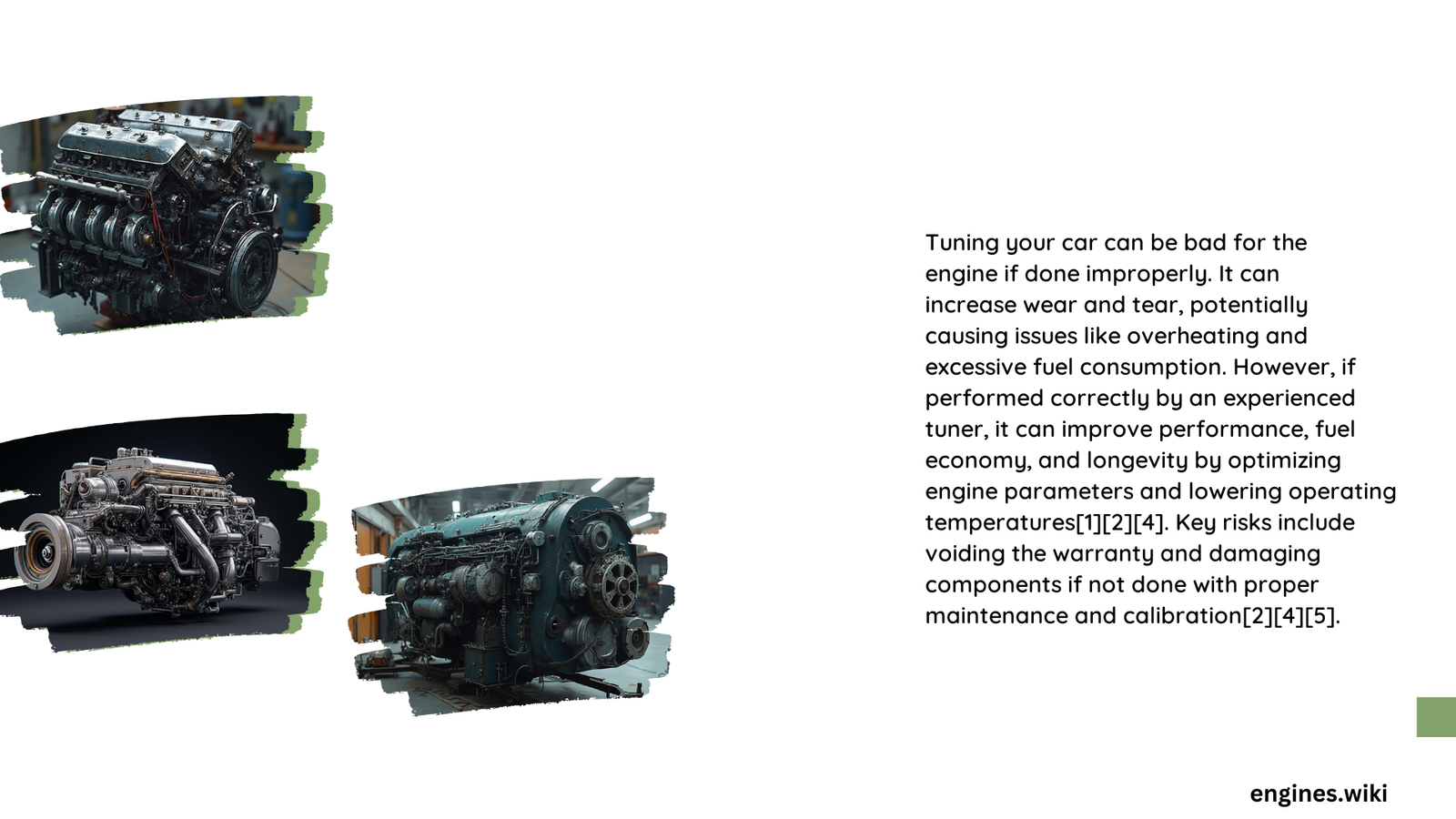Car engine tuning represents a complex intersection of performance enhancement and potential mechanical stress. While enthusiasts seek increased power and efficiency, the practice can introduce subtle yet significant risks to engine components. Understanding the nuanced balance between performance gains and potential wear becomes crucial for automotive owners contemplating modifications that might compromise their vehicle’s long-term reliability and structural integrity.
What Happens When You Tune Your Car?
Engine tuning involves strategic modifications to a vehicle’s electronic control unit (ECU), exhaust systems, and internal components to optimize performance. These alterations can dramatically impact engine dynamics, potentially introducing both benefits and challenges.
How Does Tuning Affect Engine Components?
Stress on Critical Engine Parts
When considering whether tuning your car is bad for the engine, several key factors emerge:
- Increased Mechanical Stress
- Higher combustion pressures
- Enhanced thermal load on components
-
Accelerated wear on critical engine parts
-
Potential Performance Risks
- Turbocharger strain
- Elevated fuel system demands
- Potential premature component failure
| Component | Risk Level | Potential Impact |
|---|---|---|
| Piston Rings | Moderate | Increased wear |
| Turbocharger | High | Premature failure |
| Fuel Injectors | Moderate | Performance degradation |
| Engine Bearings | Low-Moderate | Reduced longevity |
What Are the Quantitative Impacts on Engine Wear?
Research suggests tuning can incrementally increase engine wear rates:
- ECU remapping might increase failure probabilities by 2-3%
- Aggressive tuning could reduce component lifespan by 10-15%
- Performance tunes potentially decrease fuel efficiency by 5-10%
Can Proper Tuning Mitigate Risks?
Strategic, professional tuning can minimize potential negative consequences:
- Work with certified automotive performance specialists
- Use high-quality components designed for increased stress
- Implement rigorous maintenance schedules
- Monitor engine parameters consistently
What Environmental Factors Influence Tuning Outcomes?
External conditions significantly impact tuning effectiveness:
- Temperature Variations
- High temperatures accelerate component wear
-
Increased heat stress on modified systems
-
Altitude Considerations
- Lower air pressure affects engine performance
- Potential reduction in power output
- Enhanced stress on turbocharged systems
How to Approach Car Tuning Responsibly?
Recommendations for minimizing engine damage:
- Consult professional performance engineers
- Choose reputable tuning providers
- Invest in high-quality aftermarket components
- Maintain conservative performance modifications
- Regular diagnostic checks and maintenance
Conclusion: Balancing Performance and Preservation

While tuning introduces potential risks, informed and measured approaches can help automotive enthusiasts enhance vehicle performance without catastrophic consequences. Understanding individual vehicle characteristics, implementing professional modifications, and maintaining rigorous maintenance protocols are key to successful engine tuning.
